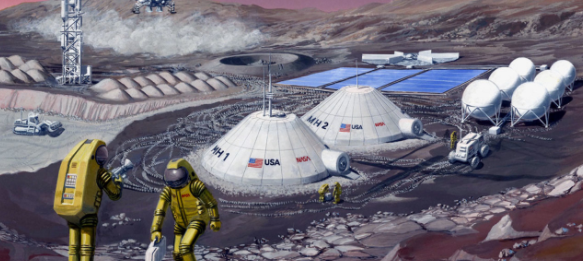
Colonizing Other Planets
Let’s face it: this planet is dying. At the moment we can either slow this process down, or maybe stop the current path. But we should still prepare, in case we do have to leave Earth at some point in the distant, or maybe near, future. But this scenario wouldn’t be exactly like a sci-fi movie. It would take years to move all of Earth’s population to another planet. There are many things that we would have to consider for choosing a planet.
Primarily, the planet that humanity may choose can’t just be any random planet. It would need to have certain things. One of those things is food.; food gives your body energy. If you don’t have energy, your body can’t do things, like making your heart work. If your heart stops, you die. So, for a planet to be colonized, it must have food, or be able to support farming. Another thing is water; similar to food, creatures on Earth need water to survive. Therefore, the planet must have water, or something like water. Finally, you need oxygen and an atmosphere.
The first planet most people would think about when it comes to settlements is probably Mars. NASA is currently working on a mission to setup a permanent base on the planet. But this will take a long time before we can fully colonize it. Another option would be the planet Kepler-186f. But, this planet is 557.7 light years away; hence we have nowhere near the technology needed to get there at the moment. There are other planets, but for now, these are humanity’s two main options.
The idea of interplanetary colonization may sound really futuristic to us, but it is more close than we think. We may need an option soon depending on how we treat this planet. It will probably be a long time before this happens, but we should be prepared in case. Which planet would you like to inhabit?
References:
Daines, Gary. “NASA’s Journey to Mars.” NASA, NASA, 13 Feb. 2015, www.nasa.gov/content/nasas-journey-to-mars.
Writer, Miriam Kramer Staff. “Found! First Earth-Size Planet That Could Support Life.” Space.com, www.space.com/25530-earthsize-exoplanet-kepler-186f-habitable-discovery.html.